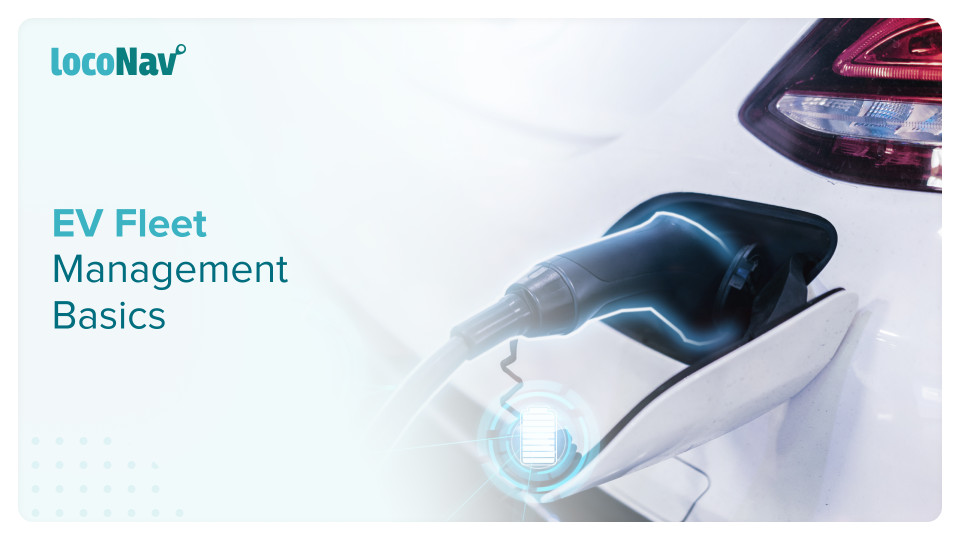Europe's EV Fleet Management System Market: A $1.87 Billion Opportunity by 2033
The European EV fleet management system market is experiencing a rapid rise, propelled by a confluence of factors. Fueled by a growing need for optimized operations and enhanced efficiency, transportation and logistics delivery companies are driving the demand for robust fleet management solutions. Additionally, the emphasis on prolonging the lifespan of EVs is further accelerating the adoption of fleet management systems, which enable predictive maintenance and optimized usage.
Key Drivers of Market Growth
The market is witnessing a significant shift towards electric vehicles (EVs) across Europe. This trend is driven by a combination of factors, including:
- Environmental Concerns: The increasing awareness of climate change and the need to reduce carbon emissions has driven many European nations to implement stringent emission regulations and policies that promote the adoption of EVs. The European Union has set ambitious targets for reducing greenhouse gas emissions, which has led to a surge in the demand for EVs and the need for efficient fleet management systems.
- Government Incentives: Many European governments are offering financial incentives, including tax breaks and subsidies, to encourage individuals and businesses to switch to EVs. These incentives play a crucial role in making EVs more affordable, driving adoption and, consequently, the demand for fleet management systems.
- Cost Savings: Despite the initial investment cost, EVs are becoming increasingly cost-effective in the long term due to their lower fuel costs and reduced maintenance requirements. Fleet management systems further enhance the cost savings by optimizing energy consumption, minimizing downtime, and increasing vehicle utilization.
- Technological Advancements: The rapid advancements in battery technology, charging infrastructure, and fleet management software are making EVs more practical and appealing to businesses. These technological advancements, in turn, drive the adoption of fleet management solutions to manage and optimize these sophisticated vehicles.
Market Segmentation: A Deep Dive into the European Landscape
The European EV fleet management system market is segmented based on several key factors:
Applications:
- Logistics and Transportation: This sector is a primary driver of the market, as logistics companies seek to optimize their operations, reduce costs, and enhance efficiency by implementing fleet management systems.
- Public Transportation: Government agencies and public transport operators are increasingly adopting EVs to improve air quality in urban areas. Fleet management systems are essential for managing these fleets effectively and ensuring smooth operations.
- Commercial Fleets: Businesses with large commercial fleets, such as delivery companies, construction companies, and utility providers, are turning to EVs to achieve environmental sustainability and cost savings. Fleet management systems are critical for optimizing the performance of these fleets.
- Government Vehicles: Government agencies, including police departments, fire departments, and ambulance services, are adopting EVs for their fleets to meet sustainability goals and reduce operating costs. Fleet management systems play a crucial role in managing these fleets effectively and ensuring the availability of vehicles when needed.
Product Type:
- Telematics: These systems provide real-time tracking of vehicles, enabling fleet managers to monitor their location, speed, and other operational parameters. They are crucial for optimizing routes, improving driver safety, and enhancing overall fleet efficiency.
- Fleet Analytics: These solutions provide comprehensive data insights into fleet performance, such as fuel consumption, maintenance schedules, and driver behavior. This information is valuable for making informed decisions, improving operational efficiency, and reducing costs.
- Charging Management: These systems allow fleet managers to monitor and control the charging process of EVs, ensuring optimal charging times and minimizing downtime.
- Route Optimization: These solutions leverage data and algorithms to calculate the most efficient routes for vehicles, reducing travel time, fuel consumption, and overall operating costs.
- Others: This category includes various other fleet management solutions, such as driver management, maintenance management, and asset tracking.
Deployment Type:
- Cloud-Based: Cloud-based fleet management systems provide access to data and functionalities through the internet, enabling fleet managers to manage their operations remotely. These systems are often more flexible and scalable than on-premise solutions.
- On-Premise: On-premise systems are installed on-site and require dedicated hardware and software. While they offer greater control over data security, they are often more expensive and less flexible than cloud-based solutions.
End Users:
- Fleet Operators: The primary users of fleet management systems are fleet operators, who leverage these solutions to manage their vehicles, drivers, and operations efficiently.
- Service Providers: Companies specializing in fleet management services offer solutions to various clients, providing comprehensive fleet management expertise and support.
- Charging Infrastructure Providers: Charging infrastructure providers integrate fleet management systems into their services, enabling the seamless management of charging processes for electric fleets.
The Impact of the EV Fleet Management System Market
The rapid growth of the European EV fleet management system market is having a significant impact on several aspects of the transportation industry, including:
- Increased Efficiency: Fleet management systems are driving greater efficiency by optimizing routes, reducing fuel consumption, and minimizing downtime. This, in turn, leads to cost savings for fleet operators and a more sustainable transportation system.
- Improved Safety: Real-time tracking, driver behavior monitoring, and other features offered by fleet management systems enhance driver safety, reducing accidents and improving overall fleet safety records.
- Enhanced Sustainability: By promoting the adoption of EVs and optimizing their operations, fleet management systems are playing a crucial role in reducing carbon emissions and contributing to a more sustainable transportation sector.
Key Players Shaping the Market Landscape
Several key players are driving innovation and competition within the European EV fleet management system market. These include:
- Ford Motor Company: Ford, a leading automotive manufacturer, is actively developing and integrating fleet management solutions into its vehicles, offering comprehensive services for managing EV fleets.
- Element Fleet Management Corp: Element Fleet Management Corp. is a global fleet management provider offering a wide range of solutions, including EV fleet management, telematics, and charging infrastructure.
- ChargePoint, Inc.: ChargePoint, a leading provider of EV charging infrastructure, is also expanding into fleet management solutions, offering comprehensive services for managing charging networks and EV fleets.
- Michelin Co.: Michelin, a renowned tire manufacturer, is diversifying into fleet management services, leveraging its expertise in tire technology and vehicle maintenance to offer comprehensive EV fleet management solutions.
- Geotab Inc.: Geotab is a global leader in telematics, offering cutting-edge fleet management solutions for EVs, including real-time tracking, driver behavior monitoring, and predictive maintenance.
- Samsara Inc.: Samsara is a leading provider of connected operations platforms, offering comprehensive fleet management solutions that integrate with various technologies, including EVs, to improve operational efficiency.
- Webfleet: Webfleet is a global provider of fleet management solutions, offering a suite of services for managing EV fleets, including real-time tracking, route optimization, and driver behavior analysis.
- Watea: Watea is a leading provider of EV charging solutions, specializing in intelligent charging management systems for fleet operations.
- Guided Energy: Guided Energy is a technology company specializing in EV fleet management software, offering solutions for optimizing charging schedules, reducing energy consumption, and enhancing the overall efficiency of EV fleets.
- CalAmp: CalAmp is a provider of wireless communications and telematics solutions, offering fleet management systems for EVs, including real-time tracking, driver behavior monitoring, and asset tracking.
- gridX: gridX is a software company specializing in EV charging management systems, offering solutions for optimizing charging schedules, coordinating with grid resources, and reducing charging costs.
- GAC Technology: GAC Technology is a provider of telematics and fleet management solutions, offering services for managing EV fleets, including real-time tracking, driver behavior analysis, and fleet optimization.
- TRONITY: TRONITY is a provider of EV charging management platforms, offering solutions for managing charging networks, coordinating with EV fleets, and simplifying the charging process for EV drivers.
These companies are actively investing in research and development, forging strategic partnerships, and expanding their product offerings to meet the growing demand for EV fleet management solutions in Europe.
A Look Ahead: The Future of the European EV Fleet Management System Market
The European EV fleet management system market is poised for continued growth in the coming years, driven by several key trends:
- Increased EV Adoption: The adoption of EVs is expected to accelerate further in Europe, fueled by government incentives, technological advancements, and rising environmental concerns. This growth will translate into a surge in demand for fleet management solutions to optimize the operations of EV fleets.
- Advancements in Technology: Continued advancements in telematics, artificial intelligence (AI), and machine learning (ML) will lead to more sophisticated and intelligent fleet management systems. These systems will enable even greater efficiency, cost savings, and sustainability benefits.
- Integration of Smart Charging: The integration of smart charging technologies with fleet management systems will allow for more efficient and cost-effective charging of EV fleets. This will involve coordinating charging schedules with electricity grid demands to optimize energy consumption and reduce costs.
- Emphasis on Sustainability: The focus on sustainability will continue to drive the adoption of EV fleet management systems, as businesses seek to reduce their carbon footprint and contribute to a greener transportation sector.
Conclusion: A Bright Future for EV Fleet Management
The European EV fleet management system market is on a trajectory of significant growth, driven by a confluence of factors. From environmental concerns and government incentives to technological advancements and cost savings, the market is primed for continued expansion. As more businesses and organizations adopt EVs, the demand for sophisticated fleet management solutions will only increase, creating a substantial market opportunity for innovative companies that can meet the evolving needs of this dynamic sector.


















